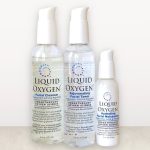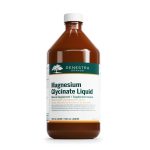Uncover The Truth: Clear Liquid Spit Up In Infants – Take Action Now!
Clear Liquid Spit Up in Infants: Causes, Symptoms, and Treatment
Greetings, readers! Today, we will discuss a common concern among parents – clear liquid spit up in infants. As parents, it’s natural to worry when our little ones experience any discomfort or unusual symptoms. In this article, we will provide you with valuable information about clear liquid spit up in infants, including its causes, symptoms, and treatment options.
Introduction
Clear liquid spit up, also known as regurgitation, is a common occurrence in newborns and young infants. It is characterized by the involuntary expulsion of stomach contents through the mouth. Unlike vomiting, which is forceful and often accompanied by nausea, clear liquid spit up is usually effortless and does not cause distress to the infant.
1 Picture Gallery: Uncover The Truth: Clear Liquid Spit Up In Infants – Take Action Now!

1️⃣ What is clear liquid spit up in infants? Clear liquid spit up refers to the passage of stomach contents, primarily breast milk or formula, back into the esophagus and out of the mouth.
2️⃣ Who experiences clear liquid spit up in infants? Clear liquid spit up is most commonly observed in infants aged 0-12 months. It is particularly prevalent in the first few months of life.

Image Source: 123babybox.com
3️⃣ When does clear liquid spit up in infants occur? Clear liquid spit up can occur during or shortly after feeding. It is important to note that occasional spit up is normal in infants, but persistent or excessive regurgitation may require further evaluation.
4️⃣ Where does clear liquid spit up in infants occur? Clear liquid spit up typically occurs in infants’ mouths. It may be accompanied by small amounts of milk, which can sometimes dribble out of the mouth.
5️⃣ Why does clear liquid spit up in infants happen? Clear liquid spit up is attributed to the immaturity of the muscles that control the passage between the esophagus and stomach. This allows stomach contents to flow backward more easily.
6️⃣ How does clear liquid spit up in infants affect them? While clear liquid spit up is generally harmless, it can lead to temporary discomfort and anxiety for parents. In some cases, it may contribute to issues such as poor weight gain or inadequate nutrition.
Causes, Symptoms, and Treatment
1️⃣ Causes of Clear Liquid Spit Up in Infants
Clear liquid spit up in infants can have several causes, including:
Gastroesophageal reflux (GER)
Immature digestive system
Overfeeding
Food allergies or intolerances
Infections
2️⃣ Symptoms of Clear Liquid Spit Up in Infants
Infants experiencing clear liquid spit up may exhibit the following symptoms:
Frequent regurgitation
Irritability during or after feeding
Poor weight gain
Arching of the back or neck during feeding
Coughing or choking episodes
3️⃣ Treatment of Clear Liquid Spit Up in Infants
Most cases of clear liquid spit up in infants resolve on their own without treatment. However, if the symptoms are severe or persistent, medical intervention may be necessary. Treatment options may include:
Feeding modifications, such as smaller, more frequent feedings
Thickening formulas or breast milk with rice cereal
Medications to reduce stomach acid
Elimination diets for breastfeeding mothers
Surgical intervention in rare cases
Advantages and Disadvantages
1️⃣ Advantages of Clear Liquid Spit Up in Infants
– It is a natural occurrence in many infants.
– It is usually harmless and resolves on its own.
– It helps release excess air from the stomach, reducing discomfort.
2️⃣ Disadvantages of Clear Liquid Spit Up in Infants
– It can cause temporary discomfort and anxiety for parents.
– It may lead to poor weight gain or inadequate nutrition in some cases.
– Excessive regurgitation may require medical intervention.
Frequently Asked Questions (FAQ)
1️⃣ Q: Can clear liquid spit up in infants be prevented?
A: While it cannot be entirely prevented, certain measures such as feeding in an upright position and burping frequently can help reduce the frequency of spit up.
2️⃣ Q: When should I be concerned about my baby’s clear liquid spit up?
A: Consult your pediatrician if your baby experiences forceful vomiting, projectile vomiting, blood in the spit up, or exhibits signs of dehydration.
3️⃣ Q: Can clear liquid spit up be a sign of an underlying medical condition?
A: In some cases, clear liquid spit up may be associated with conditions such as gastroesophageal reflux disease (GERD) or food allergies. Consult a healthcare professional for a proper diagnosis.
4️⃣ Q: Is it normal for infants to spit up clear liquid after every feeding?
A: Occasional spit up is considered normal. However, if your baby is consistently spitting up large amounts after every feeding, it is advisable to seek medical advice.
5️⃣ Q: Can I continue breastfeeding if my baby has clear liquid spit up?
A: Yes, most breastfeeding babies with clear liquid spit up can continue nursing. However, consult with a lactation consultant or healthcare provider for guidance.
Conclusion
In conclusion, clear liquid spit up is a common occurrence in infants that usually resolves on its own. While it can be concerning for parents, it is typically harmless. If you have any concerns or if your baby’s symptoms persist or worsen, it is recommended to seek medical advice. Remember, every baby is unique, and what works for one may not work for another. Trust your instincts as a parent and consult with healthcare professionals to ensure your baby’s well-being.
Thank you for reading this informative article on clear liquid spit up in infants. We hope it has provided you with valuable insights and guidance. Remember, as parents, we are all in this together. Stay strong, friends!
Disclaimer
Please note that the information provided in this article is for educational purposes only and should not replace professional medical advice. Always consult with a healthcare professional regarding your baby’s specific condition and treatment options.
This post topic: Liquid



